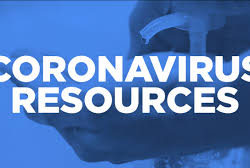Prescription Drug Abuse – Individuals of all ages abuse prescription drugs. Individuals abuse these drugs because they are an easily accessible and inexpensive means of altering a user’s mental and physical state; the effects vary depending upon the drugs the abuse. They are abused in a variety of ways. They are available as talblets and taken orally or crush ed them into poweder, which they can then be snorted.
Drug type Common Brand Names
______________________________________________________________________________________________
Opioids/narcotics/pain relievers = Dilaudid, Lorcet, Lortab, OxyContin, Percocet, Percodan, Tylox, Vicodin
______________________________________________________________________________________________
Depressants (BenzodiaZepines, tranquilizers, barbiturates, sedatives = Lebrium, Valium, Xanax
______________________________________________________________________________________________
Stimulants = Adderall, Concerta, Ritalin
_______________________________________________________________________________________________
Depressants:
Sometimes called “downers,” these drugs come in multicolored tablets and capsules or in liquid form. Some drugs in this category, such as Zyprexa, Seroquel and Haldol, are known as “major tranquilizers” or “antipsychotics,” as they are supposed to reduce the symptoms of mental illness. Depressants such as Xanax, Klonopin, Halcion and Librium are often referred to as “benzos” (short for benzodiazepines1). Other depressants, such as Amytal, Numbutal and Seconal, are classed as barbiturates—drugs that are used as sedatives and sleeping pills. Some of the well-known brand and street names can be found here.
DEPRESSANTS: LONG-TERM EFFECTS
Tolerance to many depressants can develop rapidly, with larger doses needed to achieve the same effect. The user, trying to reach the same high, may raise the dose to a level that results in coma or death by overdose.
Long-term use of depressants can produce depression, chronic fatigue, breathing difficulties, sexual problems and sleep problems. As a dependency on the drug increases, cravings, anxiety or panic are common if the user is unable to get more.
ANTIDEPRESSANTS:
Another category of prescription drugs that are sometimes abused are antidepressants. These include Prozac, Paxil, Celexa, Zoloft, Effexor and Remeron. These come in multicolored capsules and tablets.
Studies have shown that the effects of these drugs can include:
- Insomnia
- Irritability
- Nervousness and anxiety
- Violent thoughts and actions
- Agitation
- Suicidal thoughts or suicide
- Tremors
- Hostility
- Sweating
- Irregular heartbeat
- Aggression
- Criminal behavior
- Confusion and incoherent thoughts
- Paranoia
- Hallucinations
- Psychosis
- Akathisia (a painful inner agitation; inability to sit still)
One study found that 14% of the young people taking an antidepressant became aggressive and even violent. One 12-year-old boy developed violent nightmares about killing his classmates, then being shot himself. The dream continued to feel “very real” after awakening, and for days he experienced dreams of killing that seemed increasingly real. He became acutely suicidal until the drug was stopped.
This study gave several other examples of extreme and irrational behavior from individuals on these drugs. One man rammed a police officer with his vehicle so he could grab the officer’s gun and shoot himself. Another drowned himself and his two small children in a bathtub, and a boy bludgeoned a close friend for no apparent reason. None had any previous history of violence.
Withdrawal symptoms of antidepressants include suicidal thoughts, aggression, anxiety, depression, crying spells, insomnia, dizziness, vomiting, headaches, tremors, and electric “zap” sensations in the brain.
National institute on Drug Abuse for Teens
National Coalition Against Prescription Drug Abuse Website





